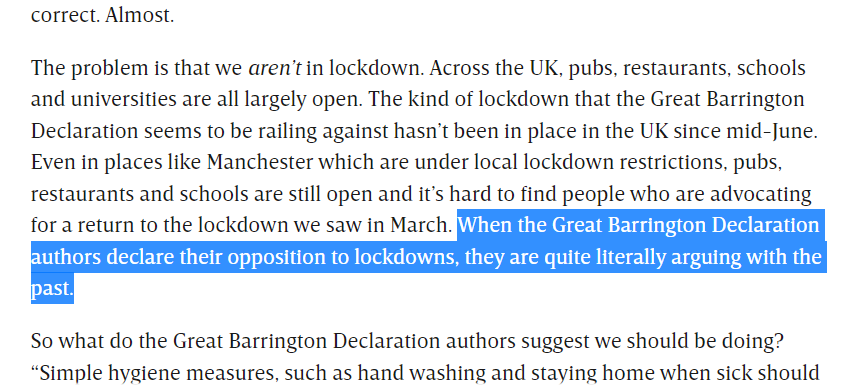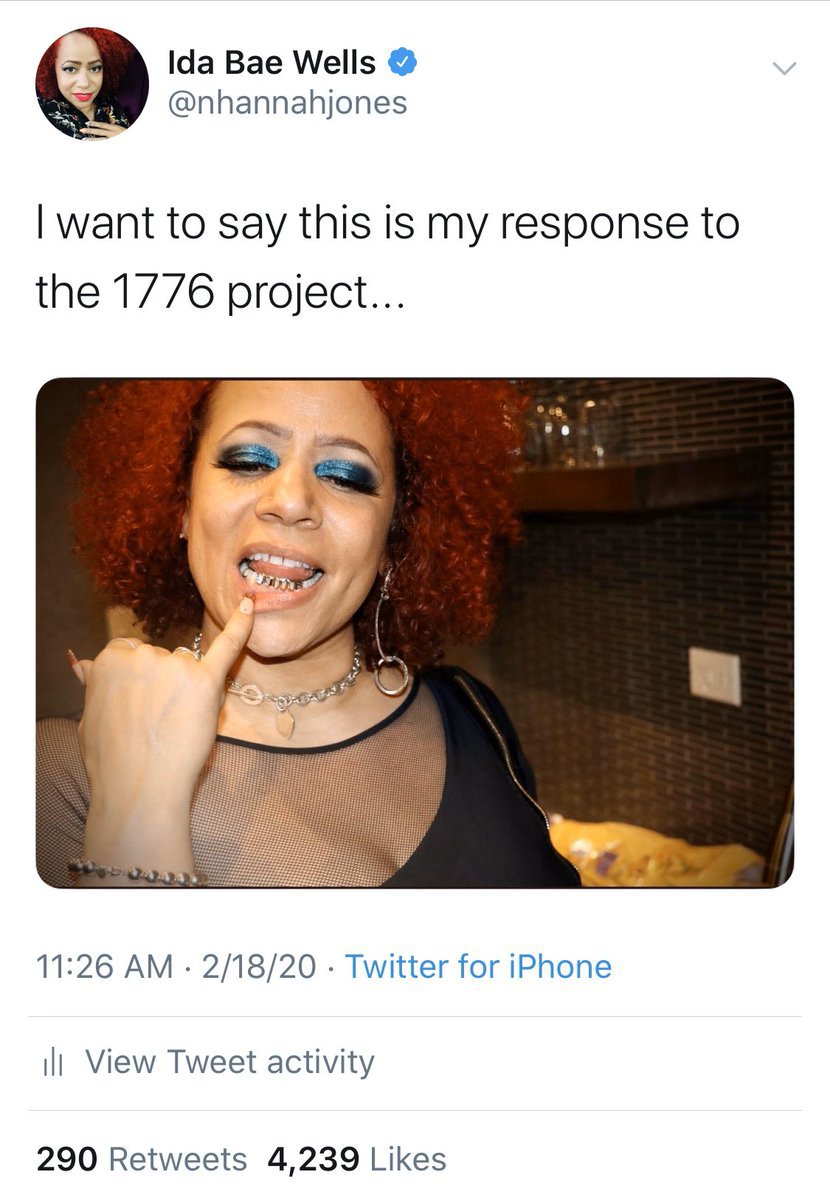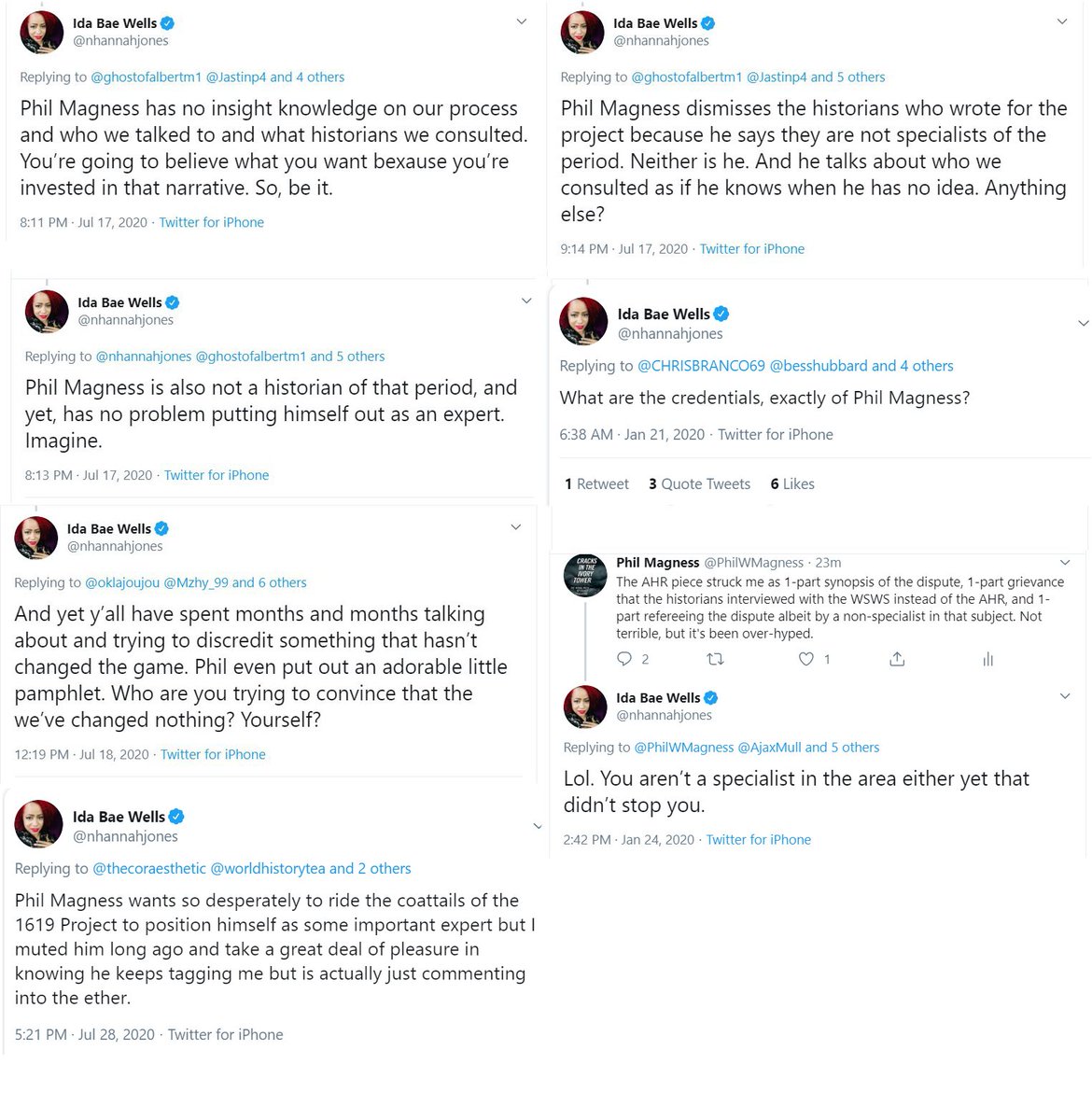
The bibliography from @nhannahjones' @masterclass lecture consists of (a) quack ideological economic history exclusively from the New History of Capitalism echo chamber, and (b) a few "classics" by Alfred Chandler and Eric Williams that NHJ almost certainly never read. 



@nhannahjones @MasterClass Listening to her lecture now. It is painfully incompetent - basically a badly garbled cliff notes version of Ed Baptist, as delivered by someone who has even less familiarity with economics than Baptist himself.
@nhannahjones @MasterClass In addition to embracing King Cotton theory, she claims that the use of accounting book on plantations is proof that they are "capitalist." She then claims accounting practices today descend from the plantations.
@nhannahjones @MasterClass Next she claims that the concept of the mortgage originated on the plantations by using slaves as collateral for loans.
Um, no. The history of mortgages traces back to lending contracts on land in medieval England.
Um, no. The history of mortgages traces back to lending contracts on land in medieval England.
@nhannahjones @MasterClass Next we get what is probably the most incompetent explanation of the Panic of 1837 that I've ever heard. The gist of it is that cotton something something risky slave bonds something something 'too big to fail' and therefore "what happened in 1830 is what happened in 2008."
@nhannahjones @MasterClass Note that she does not even know the date of this event - 1837 - and at several times in the video refers to it as 1830.
@nhannahjones @MasterClass The Panic of 1837 "lesson" is followed by what's essentially garbled conspiracy theory alleging that the financial crisis of 2008 was the product of a predatory lending scheme designed to specifically entrap African-Americans. Because something something lending and slavery.
@nhannahjones @MasterClass She never establishes how 2008 is linked to "what happened in 1830" or anything at all having to do with slavery - only that they are both recessions in the wake of vaguely alluded credit collapses that she neither explains nor - likely - understands.
@nhannahjones @MasterClass Now we're at the conclusion, which is a string of declarative statements that American capitalism is "a racist system, a brutal system" and some vaguely alluded-to Pikettyesque claim about inequality.
Therefore to fix it all, NHJ wants socialized health care and a list of 21st century progressive economic policy priorities.
• • •
Missing some Tweet in this thread? You can try to
force a refresh














